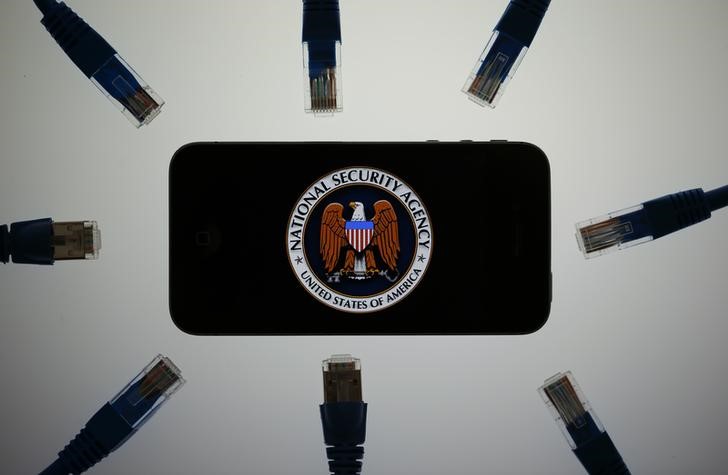By Joseph Ax
NEW YORK (Reuters) - A U.S. appeals court appeared reluctant on Wednesday to put an immediate halt to the federal government's collection of millions of Americans' phone records, with the controversial spy program set to expire in November.
The 2nd U.S. Circuit Court of Appeals in New York previously found the program illegal in May, ruling that the Patriot Act did not authorize the National Security Agency to install such sweeping surveillance. The decision came in a lawsuit filed by the American Civil Liberties Union.
At the time, the court noted that the relevant sections of the Patriot Act were set to expire on June 1 and declined to stop the program, saying Congress should have the opportunity to decide whether to permit it to continue.
Under the USA Freedom Act, which Congress passed in June, new privacy provisions take effect on Nov. 29 that will end the bulk collection, first disclosed by former NSA contractor Edward Snowden in 2013.
The program collects "metadata" such as the number dialed and the duration of calls but does not include their content.
Arguments on Wednesday centered on whether the program may continue operating between now and November.
Henry Whitaker, a lawyer for the Obama administration, told the three-judge panel that Congress clearly intended the collection to continue while the NSA transitions to the new system.
But Alex Abdo, an ACLU lawyer, said the statute explicitly extended the same Patriot Act provisions that the court concluded do not permit bulk collection.
The judges expressed concern that, as Circuit Judge Robert Sack put it, halting the program would "short-circuit" a process already under way.
Saying the ACLU had won a "historic achievement," Sack asked, "Why don't you declare victory and withdraw?"
Abdo said the ongoing collection harmed the ACLU's ability to confer with clients, such as whistleblowers, without worrying about whether the communications would be swept up by the NSA.
The Freedom Act requires companies like Verizon Communications Inc (N:VZ) and AT&T Inc (N:T) to collect metadata. Instead of feeding the data to intelligence agencies, the companies must do so only if a government request is approved by the secret Foreign Intelligence Surveillance Court.
The 2nd Circuit is the only appeals court to rule on the program's legality. Last week, an appeals court in Washington threw out a lower court's ruling that would have blocked the program, saying the plaintiffs had not shown their specific data was collected.

The 9th Circuit in San Francisco is considering a similar challenge.